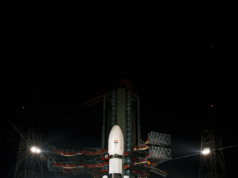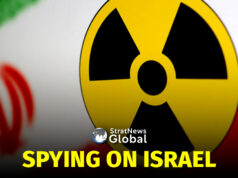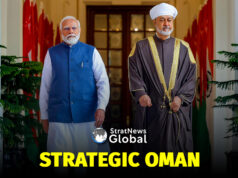NEW DELHI: “We’re (India-U.S.) in a dangerous place right now (over the India-Russia S-400 air defence system deal). The good odds are that we’re going to end up in a bad place on this (Countering America’s Adversaries Through Sanctions Act-CAATSA) unless we end this game of chicken,” says Richard Rossow, Wadhwani Chair, U.S.-India Policy Studies, Centre for Strategic and International Studies in Washington, D.C. Without a widening of the waiver, he said, “I don’t think this allows the case for India to pass through”. The India-U.S. policy specialist pointed out: “we don’t yet know the positions that a lot of senior Biden administration officials are going to take,” but added, “how do you sanction a treaty ally(Turkey) and not sanction a friend and partner (India)?” In December last year, the U.S. targeted Turkey with the CAATSA over its Russia S-400 deal. Rossow said “this was heading in our direction for quite some time” but added, “it has not lowered ambitions (between the two countries). You’ve seen the two plus two dialogues and our military engagements. There’s no indication whatsoever that either side has started to downplay expectations (of strengthening relations).
Rossow also spoke to StratNews Global Associate Editor Amitabh P. Revi on President Joe Biden’s China, Pakistan policies and the whole gamut of issues that impact bilateral ties, including defence and high tech, trade, investment, immigration, economic reform and climate change.
The 'Eye' of the story not the 'I' of the story. That's Amitabh Pashupati Revi's credo from the beginning of his professional journey in 1995. From conflicts in the war zones of Afghanistan, Syria, and Iraq to nuances of international politics in the Maldives,Thailand, and South Sudan, Amitabh has reported from all the world's continents, except for Antarctica(so far). Though, he has documented the world's third pole, the Siachen Glacier!
Amitabh reports and produces documentaries on the two-front China-Pakistan threat to India. His ground reports from Arunachal Pradesh and Ladakh have received viewership in the hundreds of thousands. Amitabh has interviewed world leaders, top global analysts, and experts in India, Russia, the United States, and Australia as well. Along the way, he’s picked up the Russian language, the Ramnath Goenka Award for his reporting on the 'Islamic State' terrorist group in Iraq, the Khaled Alkhateb Award for his reporting from Palmyra, Syria, and the UN Dag Hammarskjöld Distinguished Journalist Fellowship. Last but not least, as a founder member of StratNews Global, Amitabh helps lead the reporting, editorial, production, and administration teams at StratNews Global, BharatShakti, and InterStellar on their journey ahead.




